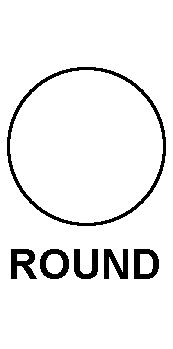6150011872785
Price Quote Get an up to date pricing and availability quote for this product. Order online or over the phone.
Quality Commitment
Serving our customers with quality and safety first.
- AS9120 Certified
- Audited supply chain
- ITAR Registered
- DDTC Registered
- HAZMAT Certified
- Customer service objectives
- Every product 100% inspected

6150-01-187-2785 Specification Set by the OEM (see RNCC code 3)
round
0.359in.
lug terminal w/mounting hole both ends single conductor
20.783in.
133 single conductor
stranded single conductor
4 awg single conductor
25 single conductor
1000.0 root mean square (rms) operating voltage single conductor
0.771in. 1st end single conductor
96906 both ends single conductor
green core conductor single conductor
plastic fluorinated ethylene propylene 1st position jacket single conductor
conductor silver
0.040 silver ounces, troy
silver
silver core conductor single conductor
Cross Reference Parts Part numbers that meet the specification outlined on this page and set by the OEM
Identification Item Identification Guide (IIG) and Item Name Code (INC)

Definition Definition of approved item name (AIN): "LEAD,ELECTRICAL"
A definite length of one-conductor electrical wire, wire braid, or other conductive material, except cable or cord, one or both ends of which are processed or terminated. The lead may be of any size or shape, insulated or uninsulated. See also lead, test and bus conductor. Excludes lead, storage battery; lead, ignition, engine, and items having attached switches, lampholders, suppressors, resistors, and the like.
6150-01-187-2785 Material Hazmat, Precious Metals, Criticality, Enviroment, and ESD
Indicates there is no data in the hmirs and the nsn is in a fsc not generally suspected of containing hazardous materials.
Item contains silver.
The item does not have a nuclear hardened feature or any other critical feature such as tolerance, fit restriction or application.
Identification Codes
HMIC: Hazardous Material Indicator Code. A one position code that identifies a hazardous item.
PMIC: Precious Metal Indicator Code. A one position code which identifies items that have precious metals as part of their content. precious metals are those metals generally considered to be uncommon, highly valuable, and relatively superior in certain properties such as resistance to corrosion and electrical conductivity.
ESD: Electrostatic Discharge. Indicates if an item is susceptible to electrostatic discharge or electromagnetic interference damage. electrostatic discharge damage occurs when an accumulation of static electricity generated by the relative motion or separation of materials is released to another item by direct contact. electromagnetic interference damage occurs when an item comes into proximity with an electrostatic or magnetic field.
ENAC: Enviromental Attribute Code. Identifies items with environmentally preferred characteristics.
CRITL: Criticality Indicator Code. Indicates an item is technically critical by tolerance, fit, application, nuclear hardness properties, or other characteristics.






